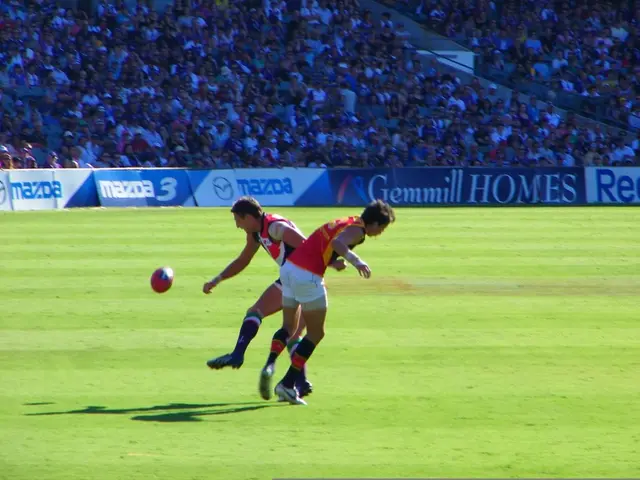Gambling industry in India faces intense criticism with legal expert's assertion that 28% GST is a punitive measure.
Blueprint for Transforming the Gaming Industry: Insights from Legal and Political Perspectives
The Indian Supreme Court is set to decide, starting May 5, a contentious case addressing the imposition of a 28% Goods and Services Tax (GST) on bets in the online real money gaming sector. This case could have critical ramifications for the regulation and taxation of digital innovations in India, reshaping the gaming industry and impacting the nation's economic landscape.
As the legal proceedings unfurl, SiGMA World spoke with Srinivas Kotni, founder and managing partner of Lexport, a leading law firm based in New Delhi, to discuss the GST valuation dispute, the nuances between skill-based and chance-based games, and the wider political impacts of the ongoing litigation.
SiGMA World: How has the 28% GST affected the online gaming industry in India?
Srinivas Kotni, Lexport: The 28% GST rate, ostensibly a moral control measure by the government, has effectively blocked investment in the gaming industry, both online and traditional, within India. Unless the government reevaluates its stance on a more industrial basis and eliminates moral reservations, it should either outright ban the industry or create a more lenient tax structure. Moreover, I am concerned not just about the high tax rate but also the valuation method. A fair valuation is more critical than the tax rate itself, as GST or service tax across the globe is typically levied on platform commissions and not gambling wins. Imposing a tax on gross receipts instead of discourages players who operate in India or attract Indian taxes.
SiGMA World: Why is a reduction in the 28% gaming tax considered unlikely?
Kotni: This is primarily due to the same government implementing the tax. Before 2023, it did not exist. Consequently, the government holds control over the situation in India. Therefore, from that perspective, a tax reduction seems unlikely unless there is significant political pressure or movement within Parliament.
SiGMA World: What are the ramifications of fiscal policy for India's competitiveness in the global market?
Kotni: Service providers, including gaming developers, have thrived in India due to the country's immense potential across the online gaming and esports industries. However, the added barriers have discouraged new participants from entering the Indian market. The restrictive fiscal policies and burdensome valuation method have dampened the enthusiasm of potential investors and new entrants, limiting India's growth potential.
Overall, the government should reassess its position on gaming taxation and adopt a more liberal stance to encourage investment and innovation in India's gaming industry, enabling the country to compete effectively in the global market.
SiGMA World: Has the industry proposed any changes to the GST framework? If so, what kind of suggestions?
Kotni: Many industry representatives have pleaded with the government for changes to the GST framework, requesting both a reduction in the tax rate and a more reasonable tax base. Unfortunately, these representations have remained unaddressed, suggesting a potential lack of interest or commitment on the government's part.
SiGMA World: What kind of reforms does the industry expect from the government regarding this taxation?
Kotni: In terms of taxes, a reduction in the GST rate remains the primary expectation. However, broader reforms, such as a comprehensive gaming law that encompasses land-based, online, and esports platforms, a central regulatory authority, and clear KYC requirements to protect consumers and generate public revenues, would also be valuable. By addressing these issues, the government can create a clear, fair, and transparent regulatory environment for the gaming industry, foster new employment opportunities, and position India as a formidable competitor in the international gaming scene.
SiGMA World: Are KYC and a gaming regulatory body enough to reform the gaming landscape in India, or are other factors also needed?
Kotni: While a gaming regulatory body and KYC requirements are crucial, a comprehensive gaming law that covers all aspects of the industry, including clear guidelines for land-based and online platforms, would be invaluable. This reform would help alleviate the gray market that currently exists, provide industry status for gaming, and establish a more level playing field that benefits both consumers and operators.
SiGMA World: How does India's gaming tax structure compare to international models? Is it effectively double taxation when players win and withdraw their winnings?
Kotni: Several countries, including Sri Lanka, have implemented more reasonable gambling taxes. For instance, Sri Lanka applies only an 18% GST instead of taxing the gross amount as in India. Moreover, worldwide, gaming taxation is generally a more liberal approach than the one India currently applies. While winnings in India are subject to income tax, GST is not imposed on withdrawals, so players do not face double taxation in that regard.
If the taxation issues are not addressed, more gaming companies may consider moving their operations to more tax-friendly locations, potentially leading to a decline in growth and economic opportunities in India.
In conclusion, the Indian gaming industry requires reform to remain competitive in the global market. The current 28% GST on online gambling has caused significant challenges for the industry, and a reassessment of the tax structure is necessary to encourage growth, investment, and innovation. The ongoing Supreme Court case offers a critical opportunity to address these issues and shape the future of digital gaming in India.
- Srinivas Kotni stated that the 28% GST, Higher than the gambling taxes in some other countries like Sri Lanka, has affected the online gaming industry in India by effectively blocking investments and discouraging potential investors due to the high tax rate and burdensome valuation method.
- In his conversation with SiGMA World, Kotni mentioned that a reduction in the 28% gaming tax seems unlikely because it is implemented by the same government that created it, and political pressure or moves within Parliament would be necessary for changes to occur.
- Kotni also expressed concerns about the fiscal policies' impact on India's competitiveness in the global gaming market. He stated that the restrictive policies have discouraged new participants and limited India's growth potential, making it essential for the government to reassess its stance on gaming taxation and adopt a more liberal approach to encourage growth, investment, and innovation within the Indian gaming industry.






